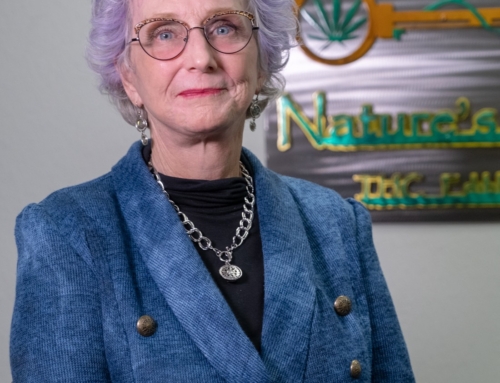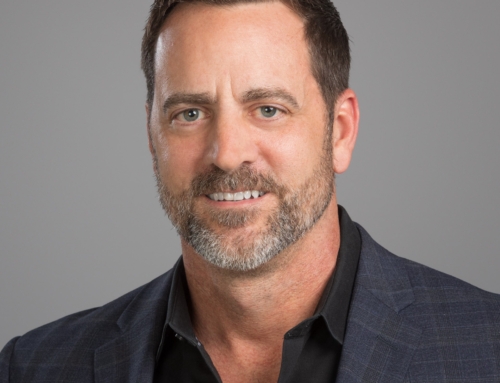“Recognize the right people in your company. This is the single most important choice you can make. Identify the circle of leaders. Make it special for the team to be in the decision-making room. If they are not part of the DNA, remove them from the room, the objectives are too important. Empower them. Make decisions that encompass the leadership team. A team can move mountains while an individual can simply stand, stare and dream. This is not a CEO world anymore. It is a leadership world and we must coach our middle managers to become leaders.”
I had the pleasure of interviewing Bert Miller, the CEO of Protis Global. Bert founded Protis Global and brings 30+ years of FMCG experience. He currently serves as the CEO of Protis Global. His mission to build the premier search and advisory firm in the world; not necessarily the biggest, but the best remains today. Since inception, Protis Global has consistently ranked in the top 15 firms globally including recognition as International Office of the Year. Born and raised on a farm in northern Indiana, Bert raised himself up through the brands of E. & J. Gallo and Revlon, to then start Protis Global and raise us all. An athlete all his life, from baseball to football, and now mind-numbing, soul-building marathons, Bert takes the competition, the drive, the sweat and the brutal determination of a sportsman and plows it all into Protis Global. From farm to founder, he knows better than anyone else that the underdog can take on the mighty. It’s one of the reasons he started Protis Global; the absolute, all-consuming belief that anyone can choose a path less traveled and fulfill their dreams. His ethos is why we all hustle every day, to build companies and put talented individuals in their dream roles. If you ask Bert anything, his answer will always be bourbon.
Can you share with us the story of what first introduced you into this business or helped you get interested in the business?
I’ve understood the benefits of cannabis for some time, but the movement of the industry when Colorado officially legalized really peaked my interest. I saw an opportunity to have an impact and to jump on a once in a lifetime opportunity.
The cannabis industry momentum and growth are comparable to post-prohibition America in the 1930s.
Being in the talent attraction space, I am privy to information and growth metrics, because my company is helping build out these companies that are shaping and steering the industry. I have the ability to impact, advise, and guide success.
I also love that the industry centers around wellness, as well as the impact it could have on lab/synthetic created drugs. The fact that it’s plant-based also is consistent with the transition that many are making in their daily diets.
Can you share the most interesting story that happened to you since you began leading your company?
This category [the cannabis industry] is interesting in that it is the single most unique experience I’ve had in the 23+ years building Protis Global. Never have I seen such a trend of openness and willing to help as we all feel part of the cannabis movement. Companies are being so transparent with us.
The last 12–14 months of acceptance in the industry have created an inertia that is incredible and exciting. It’s exciting especially at the scale at which it’s occurring and Protis is able to align with the scale and speed of the industry.
Can you share a story about the funniest mistake you made when you were first starting? Can you tell us what lesson you learned from that?
When I first started navigating and participating in this industry, I didn’t place enough emphasis on that fact that it’s an entire culture as well. This industry is migrating from dark rooms, black lights, masks, etc. to legitimization.
Most of the other legitimate industries suggest a classic sport coat is perfect attire for conferences, conventions and expos. In cannabis, you may see hoodies etc. I learned quickly that I would be the odd man out in certain situations when I stepped into a room full of guys in hoodies and chucks. However, this is changing as the industry works to legitimize itself.
The lesson I learned is to do your research. Make sure you understand the nuances associated with whatever industry you’re trying to get into. Also it is key to be aware of your audience in all scenarios and be able to adapt accordingly.
Are you working on any exciting projects now?
Yes, Protis Global is working on some exciting projects right now. We are currently reshaping the company to cater to the disruption of the cannabis industry. Our goal is to be able to help clients in the cannabis industry, by being able to utilize employment branding advisement, organizational design modeling and data to make strategic decisions and shape leadership decisions, as well as play that trusted adviser and leadership coaching role. We are able to advise companies on everything from their distribution channel to their brand strategy and how to build their employer brands.
None of us are able to achieve success without some help along the way. Is there a particular person who you are grateful towards who helped get you to where you are? Can you share a story?
My father is that person. He had no formal education or financial wherewithal. I saw what it took to provide for a family without these advantages. He understood the importance of having this opportunity and put me in a position to go to college and be educated. He instilled me with a strong foundation of beliefs and values as well as with an understanding of the importance of honesty. All of those things have helped me create this really cool business.
He also did something pivotal by helping me be the first on either side of the family to get a formal education. I’m thankful he was able to look at my kids and see how he did something that changed the trajectory of his entire lineage. That’s something to be super proud of.

This industry is young dynamic and creative. Do you use any clever and innovative marketing strategies that you think large legacy companies should consider adopting?
ABSOLUTELY. We understand that the cannabis industry is shifting and continues to morph closer into an FMCG-type industry. The products will be FMCG products. You are talking about a sector, categories within the sector and then real consumer brands within each category.
Legacy companies for all consumer products, not just cannabis should adopt storytelling as a marketing strategy. You have to be able to tell a hell of a story. Consumers want to be able to tie a product to a specific need, function, or initiative and “connect” with the product. These days, consumers don’t value the big corporate American companies. Consumers want a purpose or vision to which they can attach themselves and their purchase power.
Can you share 3 things that most excite you about the Cannabis industry? Can you share 3 things that most concern you?
Exciting
- The wellness factor — the medicinal and health benefits.
- The holistic and clean aspect of the products. This is about peace and cleansing. Think yoga. This will force consumer brands to reevaluate their products to be healthier and more beneficial to consumers, because there will be cannabis brands in the food and beverage space that will be cleaner and will promote a healthier lifestyle.
- Recreation and play. This is exciting because, I mean let’s call it like it is, alcohol is not good for our bodies. Alcohol kills people. It is a major issue.
A couple years ago in Aspen, Colorado, cannabis outsold alcohol. There is a study that concluded, in markets with legalized cannabis, 12 percent of frequent users completely stopped consuming alcohol after legalization and 25 percent say they drink significantly less. That is a 37 percent impact to adult beverage consumption. This could lead to less alcohol-related deaths.
Concerning
The first concern of mine is how the legal system will adapt and acknowledge the incarcerated and the prison system as it relates to nonviolent marijuana crimes. Fifteen percent of all inmates are locked up because of cannabis, yet cannabis is being legalized. The U.S. represents 5 percent of the global population and yet, the U.S. accounts for 80 percent of ALL opioid consumption; however, the government is still fighting against cannabis when we KNOW that cannabis can assist in alleviating the opioid epidemic. That is a major issue and a major concern of mine. We have vibrant and talented people dying every day due to this opioid crisis.
Another concern is the involvement of people currently in the industry in future legislation. We, people that are part of the movement, have to play a part in writing and guiding new legislation. If we don’t help, the government will do it for us. This continues to be a fight even with the momentum we have now.
Another concern of mine has to do with the regulation of CBD. CBD is a great tool and resource, but it isn’t regulated properly. A product can advertise that it contains dosages that it doesn’t and can be promoting false benefits. We have to be on point to ensure credibility and prevent the focus from being solely on making money.
Can you share your top “5 Things You Need to Know in Order to Run a Successful Cannabis Ancillary Company”? Please share a story or example for each.
The most crucial ancillary companies will be the ones that have a solution-focused mentality. There are so many opportunities for products and companies in the cannabis industry to differentiate themselves to consumers but also to mechanize and streamline supply chains.
Companies that help with packaging, branding, product placement, messaging, etc. will hold a ton of power.
Additionally, companies that create machinery that can act to eliminate bottlenecks and increase efficiency and productivity will be king.
At the end of the day, the ancillary companies that provide the best and most effective solutions will be the ones that are essentially “selling the strainer and picks during the gold rush.” That is where major players are built and where major money and ROI will be made.
Know your audience. Though this is a new and emerging market, a subculture has been curated and cultivated over decades. This industry’s cultural norms will be vastly different from anything we have seen before. Knowing these cues and understanding the nuances of the space and the power payers operating and pioneering this space is as critical to gaining strategic partners and alliances as the metrics and numbers are. These all are influencing decision making and ancillary companies must be diligent about keeping their finger on the pulse.
Aside from your particular vertical, which other cannabis ancillary industries to you think have very strong potential in the next few years? Can you explain why?
In general, the 3 ancillary areas I would focus on are equipment, packaging, and tech.
Equipment is king. Companies with machinery and equipment that have the ability to produce a higher volume of product, at a higher efficiency, will be the real winners when it comes to ancillary options. Anything that will facilitate quicker production will be crucial to industry growth. Those people stand to make a lot of money. This is like any CPG company.
Another area that holds a ton of potential is packaging and labeling. Consider how pivotal everything from the glass bottles to the product labels and warnings to the shelf display are to an emerging cannabis beverage brand. Regulations and restrictions for labeling will present an issue for cannabis companies. Companies that can ensure they are following industry standards will be paramount for growth. Additionally, branding and advertising will be a major component to customer acquisition and companies will shell out big bucks to ensure their products are displayed properly and strategically. State-by-state regulations will impact companies accordingly.
Lastly, there is Tech. Technology is what is going to help us understand the industry from seed to dispensary. This actually could be the first industry that is fully and legitimately supported by blockchain technology from the ground up. Technology will create critical software, help with data collection, fortify banking, and mechanize processing. It will help entrepreneurs and investors make decisions about where and how they want to invest. They will be able to look at the supply chain in its entirety and essentially choose their spot in the process along with ensuring compliancy.
What advice would you give to other CEOs or founders to help their employees to thrive?
Recognize the right people in your company. This is the single most important choice you can make.
Identify the circle of leaders. Make it special for the team to be in the decision-making room. If they are not part of the DNA, remove them from the room, the objectives are too important. Empower them. Make decisions that encompass the leadership team. A team can move mountains while an individual can simply stand, stare and dream.
This is not a CEO world anymore. It is a leadership world and we must coach our middle managers to become leaders.
You are a person of great influence. If you could inspire a movement that would bring the most amount of good to the most amount of people, what would that be? You never know what your idea can trigger. 🙂
UNITY. We need “me’ people to transform into “we” people. It is crucial for people to understand the value in shifting towards togetherness. The divisiveness is detrimental. Progress happens, and momentum carries when we act as one.
What is the best way our readers can follow you on social media?
You can follow me at:
LinkedIn: https://www.linkedin.com/in/bertmiller/
Instagram: BertsCore
You can also follow Protis Global at:
LinkedIn: https://www.linkedin.com/company/protis/
Instagram: protis.global
Thank you for joining us!
About the author:
Len Giancola has over 25 years of experience in Executive Management and Business Ownership. Formerly a Managing Director of Global Securities Finance in New York, responsible for a $16 billion trading portfolio, he is now an Officer/Board Member of over 30 corporations. With well over $100 million in sales over the last decade, including a successful residential development company, vacation rental property management company and diversified investment and online technology portfolio, Len is a Founding Partner of MJ.com and is a frequent media guest on international podcasts such as Rich Dad Radio with Robert Kiyosaki along with many other entrepreneurial and mentorship vehicles.









![“The potential to help people [in this industry] is enormous, but there’s still so much to learn.” – Ramon Alarcon, Witi](https://lakesideremedy.com/wp-content/uploads/2020/12/1thj5ekUyxQ69iLz1JJyODg-scaled-e1607882756286-500x383.jpeg)
